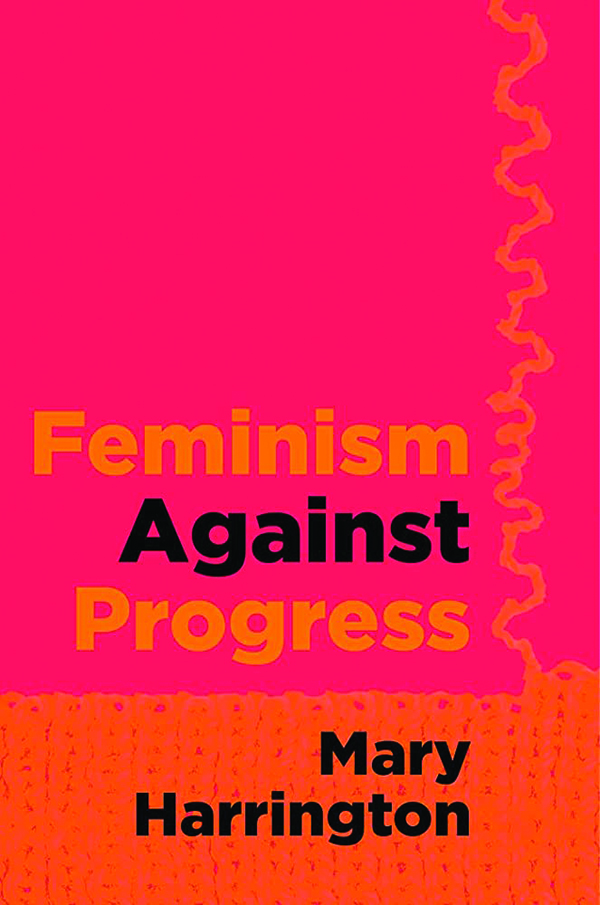
Assessing Mary Harrington’s ‘reactionary feminism’
Avi Woolf
Mary Harrington, the author of Feminism Against Progress, calls herself a feminist. But the progress she is against isn’t just any change. It’s change that calls itself forward moral progress for society but that, she says, actually makes women miserable. So, this book’s provocative title is somewhat misleading, serving as a bit of bait to hook the reader into a much more nuanced and interesting debate.

Harrington considers the current war of the sexes and gender confusion to be a product of modernity itself. As she puts it, progress for women since the Middle Ages has come with painful trade-offs that most feminists refuse to acknowledge. The pre-industrial household was one in which the husband had more rights, but both husband and wife shared a common burden and worked together. The industrial era (the short period of time during which one could find the “traditional” lifestyle conservatives today claim to miss) saw the creation of the homemaker. It was during this period when the “men work outside the home; women are the home” model dominated, a model that reduced a woman’s agency in society while worshiping her as the foundation of society.
Then there is the third stage, the one still unfolding today. Our stage sees almost unlimited and unrestrained female individualism. Women are free to marry, divorce, have children, or abort at any time with minimal legal restriction or even social sanction; free to pursue any career; free to take on any identity, even that of a man. Harrington explains this stage less in terms of any specific feminist ideology than the seemingly limitless liberating powers of technology and consumerism.
Using example after example, Harrington tells the political history of feminism like you’ve never heard it before. And it’s possible to disagree with some or even many of the specifics and still think her point is directionally, or broadly, correct. At heart, she’s saying that neither Right nor Left orthodoxy is built for female thriving. In her reading, secular, liberal, pleasure-maximizing individualism ends up looking like a failed god. But so too do the beliefs of “traditional” Reaganites and Thatcherites. Harrington’s history and polemic is, then, intended as a wake-up call to the Right. Conservatives have been brought up on the idea that the enemy of values such as family, community, and tradition is radical Marxism, rather than unrestrained free markets. As she sees it, though, part of why shallow obsession with identity has taken such a deep cultural hold is that it’s a great way to make a buck. (From the corporation’s eye-view, so much “empowerment” involves being an enthusiastic customer.)
Online, Harrington has been smeared as an outright misogynist, a fanatic who simply thinks subservient women will be happier and who regrets the development of political and economic individual rights for women since the beginning of the industrial revolution. In the book, she takes the time to argue for how women’s political and property rights have been a good thing. It’s not that she thinks it’s a bad thing feminism won against its opposite. It’s that she feels that the hyperindividualist feminism that won out is but one sub-brand of feminism that might have developed. She wishes that it had been a different victorious party in that long struggle, a more family-friendly, home-aligned, and more relational feminism — one built less in the image of men.
What now? Harrington wants a counter-cultural revolution, a “reaction” against a false “progress” that only ever benefits a specific slice of careerist women at the expense of everyone else. While she doesn’t want to ban or regulate cheap sex made possible by birth control, abortion, and surrogacy on demand, she hopes to encourage a cultural rejection of it.
Harrington’s academic background both helps and hurts her here. She analyses big ideas brilliantly, but she does so with language and terms sure to confuse readers who aren’t all that plugged into online debates on the topic. While her discussion of the profound challenge presented by transgender policies to male and female spaces is important, it comes too much at the expense of more basic questions such as where men fit into all this, as well as where non-college-educated men and women, still the majority in every country, should fit into her vision.
Despite its limitations, Feminism Against Progress is a guide to understanding how we got here, and it will serve as a place to begin the debate over where to go from here. Harrington has a strong vision, but no coalition. She’s distantly estranged from the Left and the feminist movement, yet she does take care to position herself as not a conservative. Sometimes, this is convincing, such as when she takes shots at the way we think of the “traditional” family structure. But in the deepest sense, whether she accepts the label or not, she certainly is one, if perhaps an unconventional one. She, after all, accepts the eternal reality of trade-offs in human life, a life that, at its imperfect best, will be based on mutual obligation rather than just self-fulfillment.
Avi Woolf is an editor and translator. He has been published in Arc Digital, National Review, the Bulwark, and Commentary.
